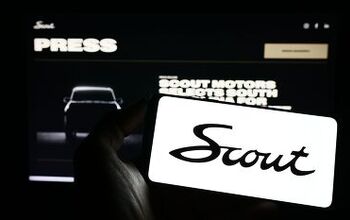China Tightens Rules For New Automakers. Too Late!

If you want to start a business in China, you need a business license. Getting a license to make cars used to be quite hard, but the Chinese government wants to make it harder. China’s industry ministry will hand down standardized rules, which may limit new entrants, Bloomberg reports.
The not yet precisely defined rules don’t sound sinister at first glance. They state that new car companies must meet certain criteria including scale of production and development capacity. They will take effect on January 1, a statement on the ministry website says.
These rules come a little late. China’s problem is not too many new car companies. China’s problem is too many old car companies. Nobody knows for sure how many there are, the accepted number is “more than 100.” In the past, it was mostly regional governments which became enthusiastic when a car company came to their province. A province without a car company is a rarity in China. Car companies often received land at bargain prices and loose loans.
However, China is falling back in the global car race. Too little research si spread out over too many car companies. If keeping up with research into conventional cars is overwhelming China’s carmakers, research into future technologies is simply something they cannot afford.
What China needs is a consolidation, and that is not brought by rules for new carmakers. It is brought by the demise of the unfit.
Auto sales growth in China is slowing, but manufacturers are building for more. Bloomberg figures that “the combined sales targets of China’s largest automakers may exceed total demand by as much as 32 percent by 2015.”
The tightening of the regulations and the much tighter money however will be in the way of new entries – such as Saab. Saab-suitor Pangda is already slowly extricating itself from the mess. According to Chinese stock site JRJ.com , Pangda will continue to negotiate even after the Memorandum of Understanding had timed out on November 15th. However, Pangda’s patience wears thin. Word in China is that Pangda will bow out soon if nothing definitive happens.
Pangda has other problems anyway. A look at the chart shows that its stock lost more than half of its value in one day, and is now slowly deteriorating. With a chart like that, no woder your enthusiasm wanes.

Bertel Schmitt comes back to journalism after taking a 35 year break in advertising and marketing. He ran and owned advertising agencies in Duesseldorf, Germany, and New York City. Volkswagen A.G. was Bertel's most important corporate account. Schmitt's advertising and marketing career touched many corners of the industry with a special focus on automotive products and services. Since 2004, he lives in Japan and China with his wife <a href="http://www.tomokoandbertel.com"> Tomoko </a>. Bertel Schmitt is a founding board member of the <a href="http://www.offshoresuperseries.com"> Offshore Super Series </a>, an American offshore powerboat racing organization. He is co-owner of the racing team Typhoon.
More by Bertel Schmitt
Latest Car Reviews
Read moreLatest Product Reviews
Read moreRecent Comments
- AZFelix What could possibly go wrong with putting your life in the robotic hands of precision crafted and expertly programmed machinery?
- Orange260z I'm facing the "tire aging out" issue as well - the Conti ECS on my 911 have 2017 date codes but have lots (likely >70%) tread remaining. The tires have spent quite little time in the sun, as the car has become a garage queen and has likely had ~10K kms put on in the last 5 years. I did notice that they were getting harder last year, as the car pushes more in corners and the back end breaks loose under heavy acceleration. I'll have to do a careful inspection for cracks when I get the car out for the summer in the coming weeks.
- VoGhost Interesting comments. Back in reality, AV is already here, and the experience to date has been that AV is far safer than most drivers. But I guess your "news" didn't tell you that, for some reason.
- Doc423 Come try to take it, Pal. Environmental Whacko.
- 28-Cars-Later Mazda despite attractive styling has resale issues - 'Yota is always the answer.


































Comments
Join the conversation
How much does the car industry reflect how their whole economy operates? Do other areas like property or cement or steel production need consolidation as well, and will it happen to all at once?
Cement and steel... at least cement and steel needed for most general purpose construction uses... are mature industries that aren't as research-intensive. Making cars in a global market is like producing cement that gets stronger and lighter every six year years to meet government regulations, yet still maintains the same price in order to maintain sales volume.